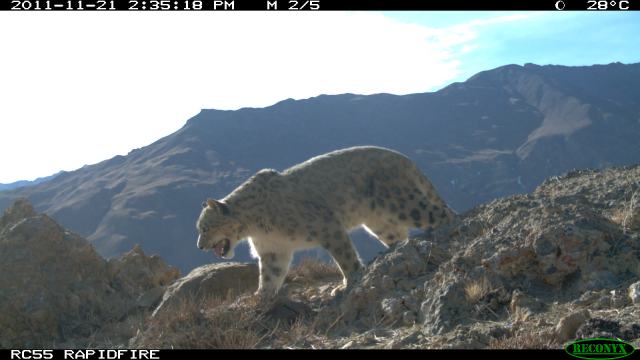The summer field season is a time when our India field team sheds their sub-zero coats, and busily makes the most of the warm weather. Here’s a quick look at what they have planned for the short, but intense summer season!
Hosting 8 nature education camps
Nature education camps have become a tradition in communities where we work in the Indian Himalayas. This year once again, local school children will head to the hills and set up their tents. They’ll spend 3 days engaged in hands-on activities that use their senses and incorporate art and theatre to build ecological understanding.

These children may have lived in the mountains their whole lives. But they emerge with a deeper understanding of the place of each plant and animal – including snow leopards.
Last year, 324 children attended a total of 8 nature camp sessions across the Spiti Valley and the Ladakh region! This year, our staff plans to put on another 8 camps—helping a new batch of children experience the wonder of camping, exploring, and learning.
Building predator-proof corrals
Keeping livestock safe from predators like the snow leopard is a major concern for local herders in the Indian Himalayas; and it’s a key to a peaceful coexistence of humans and wildlife. However, in many areas, existing corrals offer little protection and snow leopards and other predators can easily enter the enclosures. Sometimes snow leopards have been killed after preying on domestic goats in such corrals. But protecting the goats also protects the cats.

Last fall, we helped 29 families in 3 villages build corrals with strong walls and doors, and a wire covering to keep predators out. “We just heard from our field staff when they went back to the village of Skidmang,” reports Conservation Coordinator Radhika Timbadia. “In 2012 over 20 livestock were killed in winter, but this year only 2 died due to depredation, and they were very pleased.”
This summer, the team will go to 2 other villages, building or reinforcing corrals to help 30 more families. At the same time, they’ll build relationships with the herding families—creating a lasting trust that can support future conservation activities.
Counting cats in the Lingti Valley
The team also plans to count snow leopards in the Lingti Valley, Himachal Pradesh—an area where we have only recently begun working but where there are significant conflicts between snow leopards and herders.

This summer, our researchers hope to gauge the size of the snow leopard population with a motion-sensing camera survey. The terrain is difficult, with steep-walled cliffs down to the river, but the researchers are determined to make a go of it. They have also trained 7 youth from a nearby village to help—which not only advances the research, but helps the youth and the wider community understand snow leopards.

That’s awesome! Please keep up with the good work! Can you document the things you do, because I really want to know how you brilliant people go about doing this. I would love to become a researcher like you when I grow up. Stay safe and save snow leopards! 🙂
Hi!
Besides financial aid, can i help with my bare hands (next year)?
Hi Felix
There’s always things you can do to help! We need volunteers for events, mailings and various other odd jobs around our Seattle office all the time. We’re also regularly looking for volunteers with special skills around the world (graphic design, data visualization etc. etc.) – please check http://snowleopard.org/give/volunteer for more info!